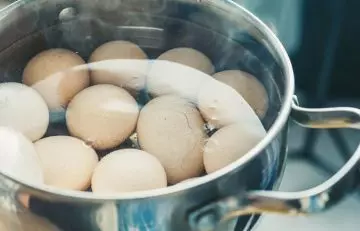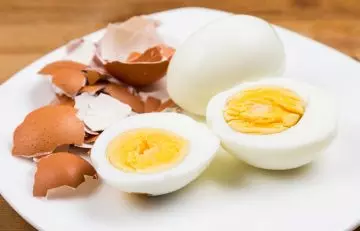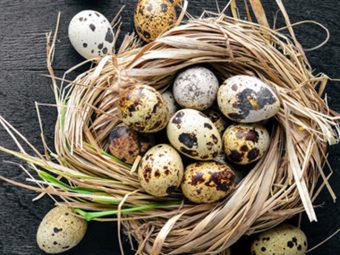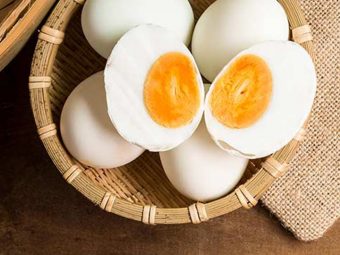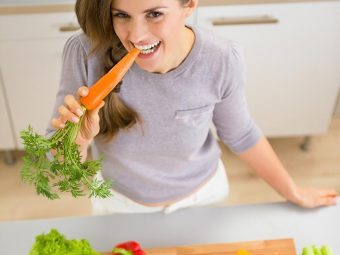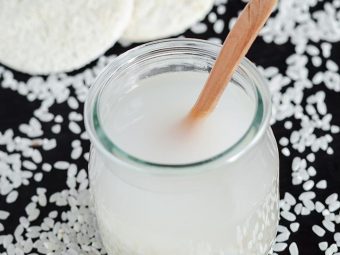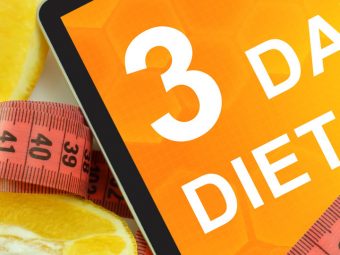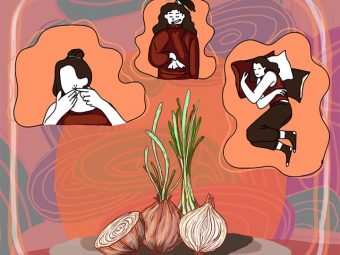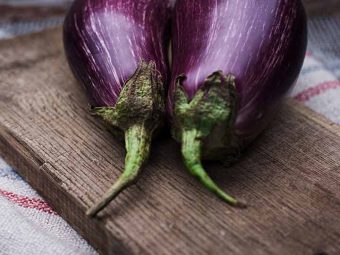This Is The Perfect Way To Boil An Egg, According To Science
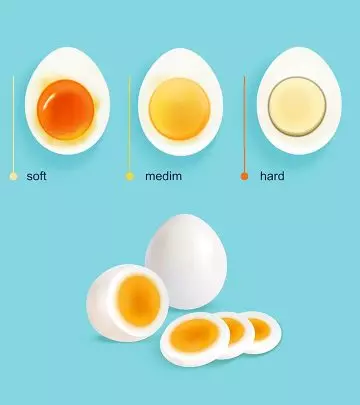
Image: Shutterstock
If you watch videos or shows of famous chefs, especially TV chefs, you will often hear them say that they test potential recruits by making them boil or scramble them. When we hear of it, we think, “Oh, come on! How hard can that be?” But if you do think about it, how many times have you cooked or been served a perfectly boiled egg?
Eggs are a staple in many countries as they are the least expensive sources of nutrition. They contain all the critical amino acids and 13 essential vitamins including Vitamin D and B12, which are essential nutrients for maintaining good health and managing weight (1). This is one of the primary reasons why doctors and nutritionists often recommend intake of eggs when trying to improve a patient’s health.
A boiled egg provides the purest form of nutrition available through an egg, as it has not yet been adulterated by cheap oils or other unwanted ingredients. Getting a perfectly boiled egg can either make or break your day. When the outer white is just perfectly soft but still firm, and yolk still runny, you are almost certain that you are going to have a beautiful day ahead. But sometimes, when the white portion is hard and the yolk fully cooked and dry, you feel like the start of the day has been ruined, and everything will just go downhill from there on. If this is your concern when you choose to have a boiled egg, then have no fear because you have come to the right place! In this article, we teach you how to cook the perfect boiled egg – and this has been approved by science!
The general advice you find across websites and shows is to place eggs in cold water, fill the water to up to an inch or two above the eggs and let the water come to a boil. The time it takes is – three minutes for the perfect soft boil, 6 minutes for just right, and 10 minutes for a hard boil. When you peel the shell off your boiled egg and cut it in half, the yolk should be firm but still tender if you like your egg hard boiled. People who prefer a soft boiled egg should find the yolks just runny enough and not raw and too runny. The reason we often get the eggs wrong is that the whites and the yolk need different peak temperatures to cook perfectly.
The white of the egg cooks to perfection at 82 degrees Celsius, which is too hot for the yolk. If you have been advised to take the pan off the heat and let the egg cook as it is for a while more, this is the reason. The yolk cooks perfectly at 72 degrees. This is also why many chefs add ice cubes when boiling the eggs or a coolant such as crème fraiche when making scrambled eggs so that the yolk doesn’t curdle or become rubbery from the high heat. When the difference in temperatures required is not accounted for, the sulfur content in the egg white reacts with the high iron content of the yolk, creating the much dreaded bluish green ring around the yolk and the inner ring of the egg white. At this point, the egg white is also probably quite rubbery and the yolk is hard and dry.
But chef Kenji Lopez-Alt took one for the team and decided to experiment with many eggs and varying temperatures to show us how we can get the perfect boil every time. For a moist yet cooked white and a just cooked yolk, Chef Alt recommends that we drop the egg gently into water that has already come to a boil, cook for half a minute, and then add an ice cube to lower the overall temperature of the water. As the ice cube melts, let the water gradually come to a boil once again, and this time you can allow the egg to cook for 11 minutes at 92 degrees Celsius. Chef Alt experimented with quite a few eggs and took them out at various intervals to check them.
The rationale to start the cooking in already boiling water, explains Chef Alt, is to make sure that the cold water doesn’t make the egg whites set and cook too closely to the shell, which can ruin the peeling process.
Now, we have a tip to peel your eggs perfectly, too! To make dishes with boiled eggs, such as deviled eggs, use old eggs that have aged in your refrigerator. The loss of moisture helps the shell peel away without creating a mess. Fresh eggs will always be a challenge to peel without poking your index fingernail through the white and ruining your manicure, but you could try immersing them in a bowl of ice cubes after a gentle crack to release the pressure.
How often do you get the perfectly boiled egg? Do you have any ancient wisdom passed on through generations to boil an egg just right every time? Do let us know by commenting in the section below.

